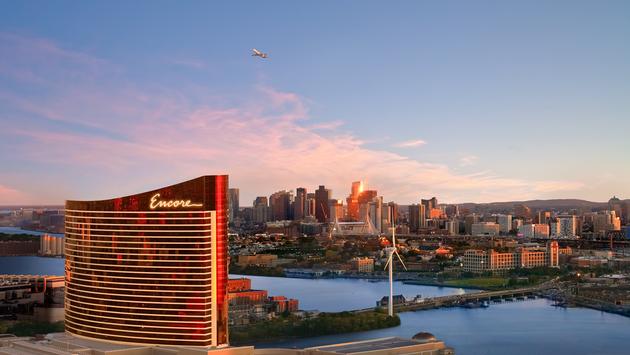
In the travel industry, new fees and restrictions tend to have one thing in common: They are introduced without fanfare and easily overlooked. Travel companies apparently hope that you won’t notice them until you’re at the front desk or the final checkout screen.
You probably aren’t aware of these recent changes. But you should be.
In the past year, Delta Air Lines, United Airlines and JetBlue Airways have quietly upped their baggage fees. For domestic flights, many U.S. airlines charge $30 for a piece of luggage that is 62 linear inches (that is, total inches high, wide and deep) and 50 pounds or less. On international flights, travelers can expect higher fees, up to $60 for a 50-pound bag.
This year, MGM Resorts increased its mandatory resort fees by $2, to $37, at seven of its properties, including MGM Grand and the Mirage. Resort insiders report another fee increase is coming Aug. 1 at some MGM hotels. In November, Royal Caribbean will begin charging passengers between $8 and $29 for signature attractions on the Quantum of the Seas.
For years when she went scalloping, Nikola Webster stayed at the same hotel in Crystal River, Fla., always booking months in advance to secure the lowest rate.
“The last time we stayed, we prepaid, and they sent me my confirmation with all the terms and conditions,” she says. But when they checked in last summer, they discovered that the hotel had added a mandatory $17-a-day resort fee without telling her.
“They demanded that I pay,” she says. Webster, an experienced traveler who also writes a travel blog called Brit on the Move, produced her terms and conditions, which made no mention of a resort fee. She stayed without paying the junk fee.
“We’ve never been back — ever,” she adds.
Hotel guests aren’t the only ones blindsided by fees. Jason Epperson, co-host of the “America’s National Parks” podcast, says he was stunned when he recently discovered campgrounds implementing fees for additional people at the campsite, “and they aren’t always upfront about it.” These unscrupulous operators charge $5 per day per person for more than two people, which can add up to more than $100 a week for his family of five, he says.
“We’re also seeing daily resort fees like those that you see at Vegas hotels implemented more and more at campgrounds that have lots of activities,” he adds.
When travel companies introduce new rules, they seldom issue news releases. Several years ago, for example, many hotels overhauled their reservation policies, setting stricter deadlines for cancellations. They started charging a penalty for cancellations less than 48 or 72 hours before scheduled arrival, instead of 24 hours. And most customers found out about it the hard way — when they tried to cancel and were denied refunds.
Why isn’t there more outcry from travelers about restrictive rules and added fees?
Sometimes, it’s because they aren’t aware of the restrictions until after the fact.
Case in point: The recent wave of cancellations for Dominican Republic vacations. Many passengers didn’t know that their airline tickets were nonrefundable and not changeable until they had second thoughts about visiting the Caribbean island.
“Travelers don’t know how restrictive the terms of their tickets are — until they check,” says Henrik Zillmer, the CEO of AirHelp, a company that helps consumers get refunds for flight delays. “The ignorance benefits the travel industry now more than ever.”
Other times, the travelers just don’t care about the added fees or restrictions.
“My clients are willing to pay the additional fees if it means one less thing to worry about when they are traveling,” says Amina Dearmon, founder of Perspectives Travel, a New Orleans travel agency. “I find this especially true when working with families and baby boomers. They are comfortable paying the additional fee on an airplane to guarantee that they can sit together or be closer to the front of the plane.”
Maybe this isn’t apathy, but fatigue. Travel policies started to become more restrictive a decade ago when airlines were delighted to discover that passengers would pay extra for their first checked bag. The enthusiasm was infectious, leaving no part of the travel industry untouched.
But every day, I hear from many travelers who do care. When travel companies add new fees without clearly disclosing them, it makes customers feel that the companies are acting in bad faith.
There’s a responsible way to handle a new policy. Travel companies should disclose the change well in advance through every booking channel, explain the reason for the change and remind customers of the new policy every step of the way.
Sofia Shershunovich, who owns several Airbnb rentals near Los Angeles International Airport, just added a few new fees, including $10 per day to store luggage, $20 per hour for late check-ins and checkouts, $20 per stay for extra guests and $80 per stay for pets. She says that she disclosed the fees through Airbnb and that they reflect her expenses, which she used to absorb as a cost of doing business.
“When people don’t understand why should they be charged more, they will get annoyed, naturally,” she says.
So far, she says, no one has complained.
By Christopher Elliott’. His latest book is “How To Be The World’s Smartest Traveler” (National Geographic). This column originally appeared in the Washington Post.
